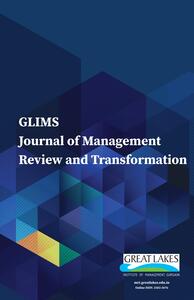
1Amity Business School, Amity University, Noida, Uttar Pradesh, India
This study examines the relationship between pro-social behaviour (PSB) and happiness, with an emphasis on three types of PSB—proactive, reactive and altruistic—and how these behaviours contribute to individual well-being. Additionally, this study also investigates the relationships between happiness and resilience, with a focus on the moderating role of mindfulness. The research aims to explore how happiness influences resilience and how mindfulness may moderate this relationship. Data were collected from a sample of 246 participants through questionnaires assessing psychological well-being and happiness. Regression analysis was used to test the impact of happiness on resilience and psychological well-being, while ANOVA was employed to examine mindfulness as a moderating factor. The findings revealed statistically significant relationships between happiness and both resilience and psychological well-being, with mindfulness showing a significant moderating effect. These results underscore the importance of happiness in enhancing psychological resilience and well-being, highlighting the role of mindfulness as a key factor in strengthening these connections. The study suggests the need for further research into how happiness promotes psychological sustainability and how mindfulness can be effectively applied in enhancing individual well-being.
Happiness, resilience, mindfulness, psychological sustainability, pro-social behavior, nudging
Bajaj, B., & Pande, N. (2016). Mediating role of resilience in the impact of mindfulness on life satisfaction and affect as indices of subjective well-being. Personality and Individual Differences, 93, 63–67. https://doi.org/10.1016/j.paid.2015.09.003
Brown, K. W., & Ryan, R. M. (2003). The benefits of being present: Mindfulness and its role in psychological well-being. Journal of Personality and Social Psychology, 84(4), 822–848. https://doi.org/10.1037/0022-3514.84.4.822
Cohn, M. A., Fredrickson, B. L., Brown, S. L., Mikels, J. A., & Conway, A. M. (2009). Happiness unpacked: Positive emotions increase life satisfaction by building resilience. Emotion, 9(3), 361–368. https://doi.org/10.1037/a0015952
Creswell, J. D., Pacilio, L. E., Lindsay, E. K., & Brown, K. W. (2014). Brief mindfulness meditation training alters psychological and neuroendocrine responses to social evaluative stress. Psychoneuroendocrinology, 44, 1–12. https://doi.org/10.1016/ j.psyneuen.2014.02.007
Dhanabhakyam, M., & Sarath, M. (2023). Psychological wellbeing: A systematic literature review. International Journal of Advanced Research in Science, Communication and Technology, 3(4), 603–607. https://doi.org/10.48175/IJARSCT-8345
Fletcher, D., & Sarkar, M. (2013). Psychological resilience: A review and critique of definitions, concepts, and theory. European Psychologist, 18(1), 12–23. https://doi.org/10.1027/1016-9040/a000124
Fredrickson, B. L. (2001). The role of positive emotions in positive psychology: The broaden-and-build theory of positive emotions. American Psychologist, 56(3), 218–226. https://doi.org/10.1037/0003-066X.56.3.218
Fredrickson, B. L., & Joiner, T. (2002). Positive emotions trigger upward spirals toward emotional well-being. Psychological Science, 13(2), 172–175. https://doi.org/10. 1111/1467-9280.00431
Garland, E. L., Farb, N. A., Goldin, P. R., & Fredrickson, B. L. (2015). The mindfulnessto-meaning theory: Extensions, applications, and challenges at the attention–appraisal–emotion interface. Psychological Inquiry, 26(4), 377–387. https://doi.org/10.1080/1047840X.2015.1064294
Garland, E. L., Gaylord, S. A., & Fredrickson, B. L. (2011). Positive reappraisal mediates the stress-reductive effects of mindfulness: An upward spiral process. Mindfulness, 2(1), 59–67. https://doi.org/10.1007/s12671-011-0043-8
Güro.png) lu, B., van den Bos, W., & Crone, E. A. (2014). Sharing and giving across adolescence: An experimental study examining the development of prosocial behavior. Frontiers in Psychology, 5, 291. https://doi.org/10.3389/fpsyg.2014.00291
lu, B., van den Bos, W., & Crone, E. A. (2014). Sharing and giving across adolescence: An experimental study examining the development of prosocial behavior. Frontiers in Psychology, 5, 291. https://doi.org/10.3389/fpsyg.2014.00291
Hills, P., & Argyle, M. (2002). The Oxford Happiness Questionnaire: A compact scale for the measurement of psychological well-being. Personality and Individual Differences, 33(7), 1073–1082. https://doi.org/10.1016/S0191-8869(01)00213-6
Hu, T., Zhang, D., & Wang, J. (2015). A meta-analysis of resilience and mental health. Personality and Individual Differences, 76, 18–27. https://doi.org/10.1016/j.paid. 2014.11.058
Jaiswal, A., Singh, A. R., & Gupta, A. (2023). Psychosocial-spiritual well-being is related to resilience and mindfulness: A study among university students during COVID-19 pandemic. BMC Psychology, 11(1), 1–12. https://doi.org/10.1186/s40359-023-00894-w
Keng, S. L., Smoski, M. J., & Robins, C. J. (2011). Effects of mindfulness on psychological health: A review of empirical studies. Clinical Psychology Review, 31(6), 1041–1056. https://doi.org/10.1016/j.cpr.2011.04.006
M, D., & M, S. (2023). Psychological wellbeing: A systematic literature review. International Journal of Advanced Research in Science, Communication and Technology (IJARSCT), 603–607. https://doi.org/10.48175/IJARSCT-8345
Malinowski, P., & Lim, H. J. (2015). Mindfulness at work: Positive affect, hope, and optimism mediate the relationship between dispositional mindfulness, work engagement, and well-being. Mindfulness, 6(6), 1250–1262. https://doi.org/10.1007/s12671-015-0442-x
Robertson, I. T., Cooper, C. L., Sarkar, M., & Curran, T. (2015). Resilience training in the workplace from 2003 to 2014: A systematic review. Journal of Occupational and Organizational Psychology, 88(3), 533–562. https://doi.org/10.1111/joop.12120
Southwick, S. M., Bonanno, G. A., Masten, A. S., Panter-Brick, C., & Yehuda, R. (2014). Resilience definitions, theory, and challenges: Interdisciplinary perspectives. European Journal of Psychotraumatology, 5(1), 25338. https://doi.org/10.3402/ejpt.v5.25338
Tugade, M. M., & Fredrickson, B. L. (2004). Resilient individuals use positive emotions to bounce back from negative emotional experiences. Journal of Personality and Social Psychology, 86(2), 320–333. https://doi.org/10.1037/0022-3514.86.2.320
Yosep, I., Mardhiyah, A., & Sriati, A. (2023). Mindfulness intervention for improving psychological wellbeing among students during the COVID-19 pandemic: A scoping review. Journal of Multidisciplinary Healthcare, 16, 1425–1437. https://doi.org/ 10.2147/JMDH.S41184